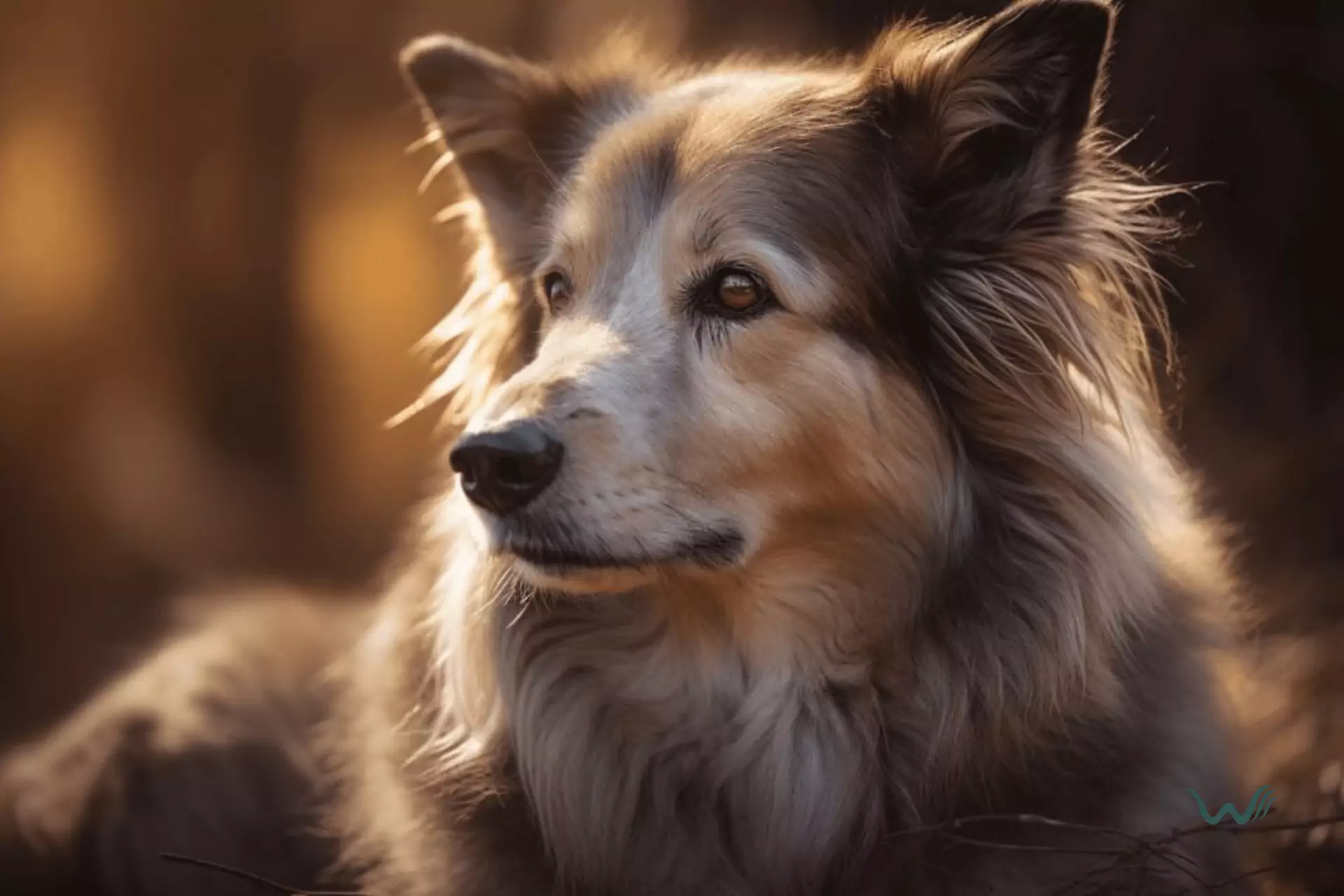

5 Things To Consider Before Adopting Mastiff Breeds
by Haley Mills
Last updated: April 22, 2024
Verified and Approved by:
Angela Morris,
MSW, LCSW
Fact Checked

Are you considering adopting a Mastiff breed? Before making this big decision, several important factors must be considered.
Mastiffs are known for their immense size and gentle nature, but they require a lot of space and care. In this article, we will explore five key considerations to keep in mind before bringing a Mastiff into your home.
Firstly, it is crucial to understand the size and space requirements of Mastiffs. These dogs are among the largest breeds in the world, with some weighing over 200 pounds. As a result, they need ample space to roam and stretch their legs.
If you live in a small apartment or have limited outdoor space, a Mastiff may not fit you best. Additionally, their size can be intimidating to some people, so consider the impact a large dog may have on your household and community.
By carefully evaluating your living situation and the space you can provide, you can determine whether a Mastiff is the right choice for you.
Key Takeaways
- Mastiffs require ample space and are not suitable for small apartments or limited outdoor areas.
- They need regular exercise, including daily walks and playtime in a secure, fenced yard.
- Proper socialization from an early age is crucial for well-behaved and friendly Mastiffs.
- Mastiffs have specific dietary needs, may require specialized diets, and need regular veterinary check-ups and grooming.
Understanding the Mastiff Breed’s Size and Space Requirements
Before adopting a mastiff breed, you should understand that these gentle giants require a significant amount of space in your home due to their large size. This makes it essential to have a spacious living area accommodating their massive presence.
Mastiffs are one of the largest dog breeds, with males weighing between 160 and 230 pounds, and females weighing between 120 and 170 pounds. Their size alone requires ample space for them to move around comfortably. Also, mastiffs are known for their exercise needs, further emphasizing the need for a large living space. These dogs require regular exercise to keep them healthy and happy.
Daily walks and playtime in a secure, fenced yard are essential to meet their exercise requirements. Without sufficient exercise, mastiffs can become bored, leading to destructive behavior.
In addition to their size and exercise needs, consider the mastiff breed’s temperament and socialization requirements. Mastiffs are known for their gentle and calm nature, but they can also be protective and territorial. They are generally good with children and other animals, but proper socialization from an early age is crucial to ensure they are well-behaved and friendly.
Mastiffs are often described as “gentle giants,” but they still need to be properly trained and socialized to be well-rounded members of the family. Exposing them to various people, animals, and environments is important to help them develop into confident and well-adjusted dogs.
Taking the time to socialize your mastiff correctly will help prevent any potential behavioral issues and ensure a harmonious relationship with your new furry friend.
Evaluating Your Lifestyle and Commitment Level
Evaluate your lifestyle and commitment level before bringing a Mastiff breed into your home. Mastiffs are large and powerful dogs requiring much time and attention. They’re not well-suited for people with busy lifestyles or those who can’t commit to providing them with the exercise and mental stimulation they need.
Time management is crucial when it comes to owning a Mastiff. These dogs require daily exercise to keep them healthy and prevent them from becoming bored or destructive. You’ll need to set aside time each day for walks, playtime, and training sessions with your Mastiff.
Additionally, Mastiffs are known for their strong attachment to their owners and can suffer from separation anxiety if left alone for long periods of time. If you work long hours or travel frequently, you may need to consider hiring a dog walker or enlisting the help of a trusted friend or family member to ensure your Mastiff gets the attention they need.
In addition to time management, you must also consider the exercise requirements of a Mastiff before bringing one into your home. These dogs aren’t couch potatoes and need regular physical activity to maintain their physical and mental well-being. Daily walks are essential, but they may also benefit from additional exercise such as running, swimming, or playing fetch. Mastiffs are prone to obesity and can develop health problems if they don’t get enough exercise, so it’s important to ensure you can provide them with the activity they need.
If you’re unable to commit to the exercise requirements of a Mastiff, it may be best to consider a different breed that better suits your lifestyle.
Considering the Financial Responsibilities of Owning a Mastiff
When owning a Mastiff, you’ll need to be aware of the financial responsibilities that come with it. Mastiffs are large dogs and as such, they come with long-term expenses. These expenses can include regular veterinary check-ups, vaccinations, grooming, and potentially higher insurance costs. Additionally, Mastiffs have a shorter lifespan compared to smaller breeds, so consider the potential costs of end-of-life care and any medical issues that may arise as they age.
It’s crucial to budget and plan for these long-term expenses to ensure that you can provide the best care for your Mastiff throughout their life.
Another financial consideration when owning a Mastiff is the cost of specialized diets. Mastiffs have specific dietary needs due to their size and potential health issues. They require high-quality, balanced diets to maintain their health and prevent certain conditions such as obesity and joint problems. These specialized diets can be more expensive than regular dog food, and the cost can increase over time.
It’s important to factor in the cost of these diets when considering the financial responsibilities of owning a Mastiff and to budget accordingly. By being prepared for these expenses, you can ensure that you are able to provide your Mastiff with the proper nutrition they need to thrive.
Researching Health and Care Needs of Mastiffs
Start by thoroughly researching mastiffs’ specific health and care needs so you can provide the best possible care for your new furry friend. Mastiffs are giant breeds that require regular exercise to maintain their physical and mental well-being. They may not be as active as smaller breeds but still need daily walks and playtime to prevent obesity and promote healthy muscle development.
Provide a safe and secure area for them to exercise, as they can easily knock over furniture or accidentally hurt themselves due to their size and strength.
In addition to exercise, mastiffs also have specific grooming needs that should be considered. Their short, dense coats require regular brushing to remove loose hair and prevent matting. This helps to keep their skin and coat healthy and reduces the amount of shedding in your home.
Mastiffs also have skin folds on their face and body that need to be cleaned regularly to prevent infections. It’s important to clean these areas gently and thoroughly to avoid any discomfort or irritation.
By taking the time to research and understand the exercise requirements and grooming needs of mastiffs, you can ensure that you’re prepared to provide the best care for your new furry friend. This will help them live a happy and healthy life and strengthen the bond between you and your mastiff.
What are the similarities in caring for Mastiff and Newfoundland breeds?
When it comes to caring for Mastiff and Newfoundland puppies, there are several similarities. Both breeds require regular exercise to keep them healthy and happy. Additionally, proper grooming, socialization, and a nutritious diet are essential for caring for Newfoundland puppies to ensure they thrive.
How Much Does it Cost to Own and Care for a Mastiff Breed Dog?
The costs of dog ownership for a Mastiff breed can add up. Food, grooming, medical care, and training all come with a price tag. A high-quality diet, regular vet visits, and obedience classes are essential. Additionally, large dogs require larger amounts of everything, which can lead to higher expenses.
– What Are the Similarities and Differences Between Mastiff Breeds and Rottweiler and Doberman Puppies?
Mastiff breeds, Rottweiler, and Doberman puppies share a muscular build and protective nature. However, the differences between Rottweiler and Doberman are evident in their appearance and temperament. Rottweilers have a black and tan coat while Dobermans have a short, sleek, and solid coat, displaying their unique characteristics.
Can Mastiff Breeds Be Suitable as Emotional Support Dogs?
Mastiff breeds are among the best emotional support dog breeds due to their gentle and calm demeanor. Their loyalty and protective nature make them great companions for people dealing with emotional difficulties. Their reassuring presence and strong bond with their owners can provide comfort and stability during tough times.
Finding a Reputable Breeder or Rescue Organization
First, you’ll want to find a reputable breeder or rescue organization to ensure you’re getting a healthy and well-cared for mastiff.
When searching for a breeder, you should ask a few questions to ensure they’re responsible and knowledgeable. Ask about the health testing they perform on their breeding dogs, such as hip and elbow evaluations, as well as any genetic testing for common mastiff health issues.
Inquire about the socialization and training they provide for their puppies and any guarantees or support they offer after the adoption. Additionally, it’s important to ask about the dogs’ living conditions, ensuring they’re kept in a clean and safe environment.
When looking for a rescue organization, ask about the history and background of the mastiffs they have available for adoption. Find out if they’ve been evaluated for temperament and any potential behavioral issues.
Inquire about any medical conditions or special needs that the mastiffs may have, and if the organization provides any support or resources for these needs. It’s also important to ask about their adoption process and any fees or requirements involved.
While searching for a reputable breeder or rescue organization, be aware of red flags that may indicate a questionable source. Avoid breeders or organizations with many dogs available at all times, as this could be a sign of a puppy mill or irresponsible breeding practices.
Be cautious of breeders or organizations that aren’t transparent about the health and care of their mastiffs, or who are unwilling to answer your questions. Trust your instincts, and if something feels off, it’s best to look elsewhere for a breeder or rescue organization that prioritizes the well-being of their mastiffs.
Conclusion
In conclusion, before adopting a mastiff breed, it’s essential to consider several factors. First, understanding these dogs’ size and space requirements is crucial, as they’re large and need ample room to move around comfortably. Additionally, evaluating your lifestyle and commitment level is a smart idea, as mastiffs require much attention and exercise. Financial responsibilities should also be considered, as these dogs can have expensive health and care needs.
Finally, finding a reputable breeder or rescue organization ensures you get a healthy and well-cared-for dog. While mastiffs can make wonderful pets, they’re not suitable for everyone. Thoroughly research and consider these factors before deciding to adopt a mastiff breed. By taking the time to understand their needs and finding the right fit for your lifestyle, you can provide a loving and fulfilling home for a mastiff.
Certify Your Emotional Support Animal Today

Why You Can Rely on Us?
At Wellness Wag, we believe your pet deserves care rooted in both science and compassion. Each article is carefully researched, written in clear language for pet owners, and then reviewed by qualified professionals to ensure the information is evidence-based, current, and practical for real-life care. Our goal is to help you feel confident in making informed decisions about your pet’s health and well-being.
Reviewed by
Angela Morris, MSW, LCSW
Angela is a licensed clinical social worker with 20 years of experience in patient advocacy and community mental health. She has assisted numerous clients with ESA evaluations and brings a deep understanding of disability accommodations, ensuring that all information is accurate, supportive, and practical.

Written by :
Haley Mills
Last Updated :
April 22, 2024












